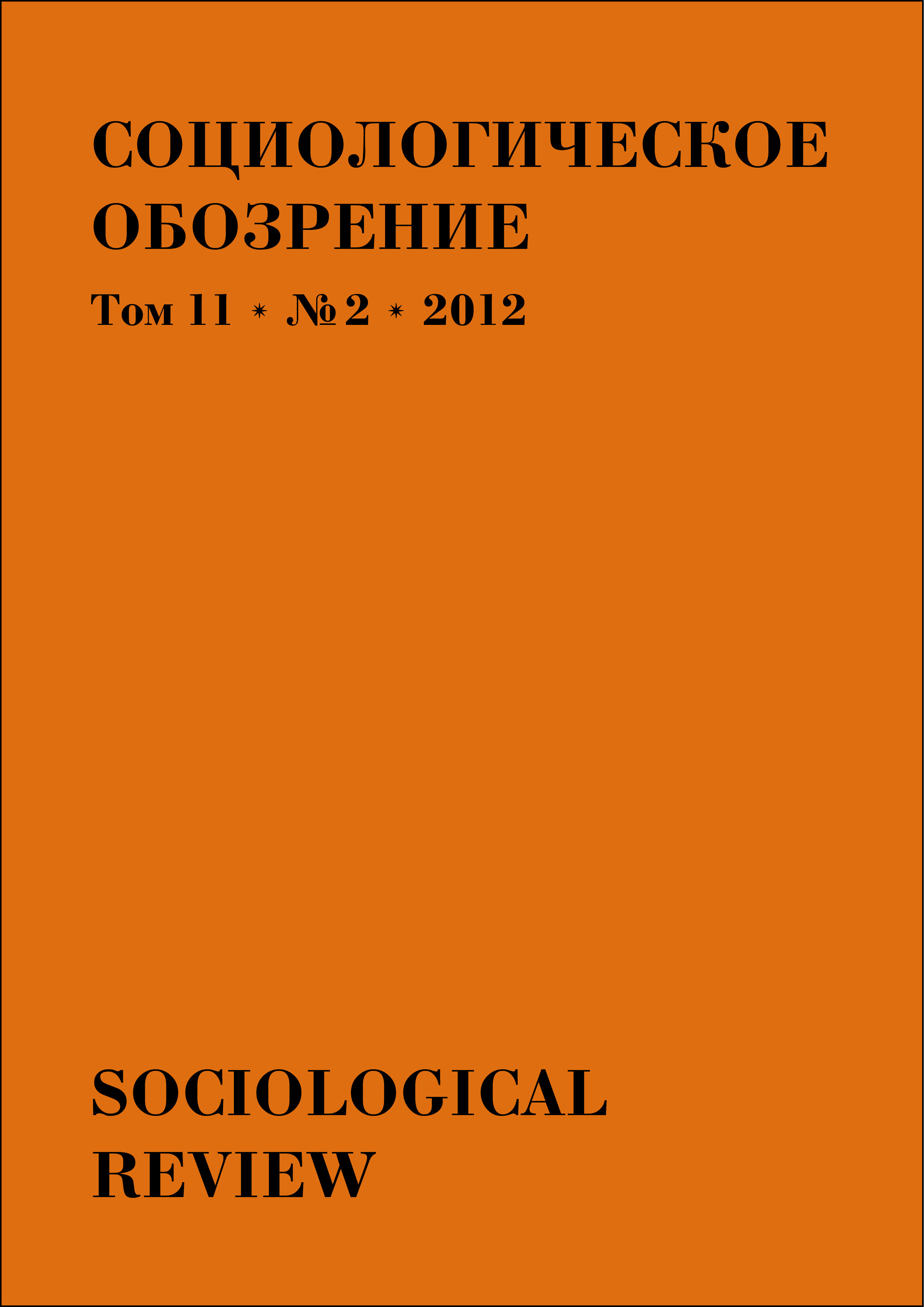Social identity: rational choice theory as an alternative approach to conceptualization
Abstract
The paper analyzes the theory of social identity. The role the individuals’ intentions play in the processes of social identities construction is considered. The article shows the potential of rational choice theory as an alternative approach to the social identity conceptualization. The lack of existing theories, in the author’s opinion, is in the absence of description and analysis of identity-choosing processes. The prevailing view is that social identity is formed unconsciously and by pressure of structural factors. The paper suggests that sociological rational choice theory can replace psychological theories which pay more attention to the individual level processes. In rational choice theory identity is understood as a matter of choice and a source of pleasure. Thus in rational choice theory, identity is still considered as a social phenomenon. It influences the individual’s behavior, but the reason for this is contained not in coercion of social structures, but in the risk of losing something valuable (in a subjective sense). Individuals do not want to risk their “source of satisfaction”, and consciously identify themselves with a group trying to maximize the measure of “group conformity”. However, this cannot be considered as an exhaustive explanation which excludes all others. The author believes that it is impossible to synthesize a single consistent theory of identity, because in this case we would have to combine incompatible things.




